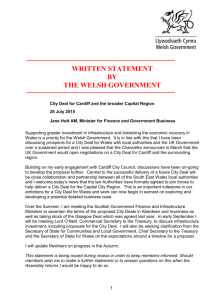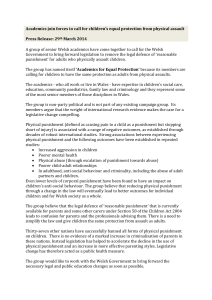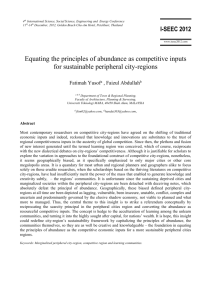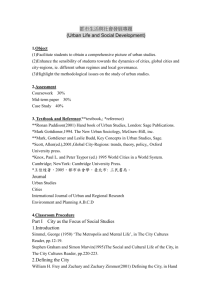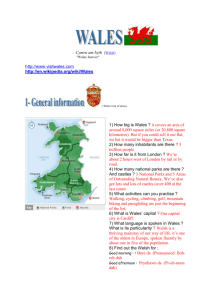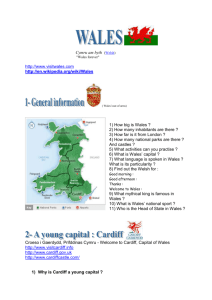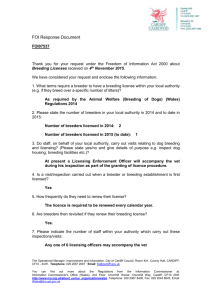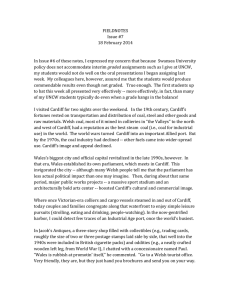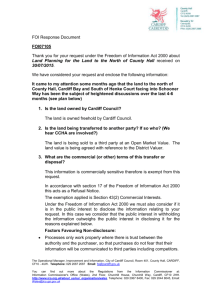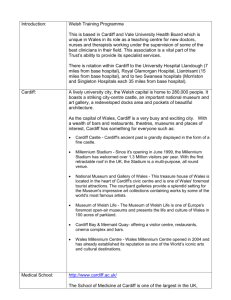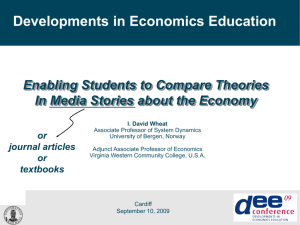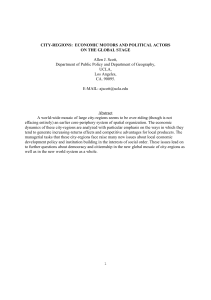City Regions
advertisement
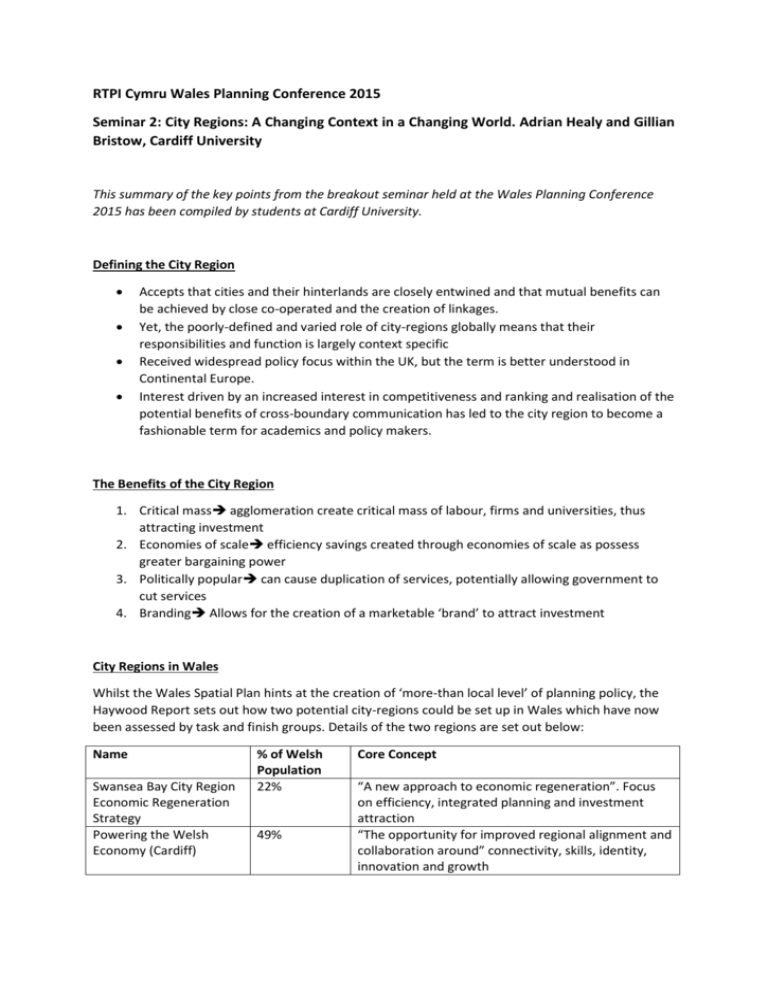
RTPI Cymru Wales Planning Conference 2015 Seminar 2: City Regions: A Changing Context in a Changing World. Adrian Healy and Gillian Bristow, Cardiff University This summary of the key points from the breakout seminar held at the Wales Planning Conference 2015 has been compiled by students at Cardiff University. Defining the City Region Accepts that cities and their hinterlands are closely entwined and that mutual benefits can be achieved by close co-operated and the creation of linkages. Yet, the poorly-defined and varied role of city-regions globally means that their responsibilities and function is largely context specific Received widespread policy focus within the UK, but the term is better understood in Continental Europe. Interest driven by an increased interest in competitiveness and ranking and realisation of the potential benefits of cross-boundary communication has led to the city region to become a fashionable term for academics and policy makers. The Benefits of the City Region 1. Critical mass agglomeration create critical mass of labour, firms and universities, thus attracting investment 2. Economies of scale efficiency savings created through economies of scale as possess greater bargaining power 3. Politically popular can cause duplication of services, potentially allowing government to cut services 4. Branding Allows for the creation of a marketable ‘brand’ to attract investment City Regions in Wales Whilst the Wales Spatial Plan hints at the creation of ‘more-than local level’ of planning policy, the Haywood Report sets out how two potential city-regions could be set up in Wales which have now been assessed by task and finish groups. Details of the two regions are set out below: Name Swansea Bay City Region Economic Regeneration Strategy Powering the Welsh Economy (Cardiff) % of Welsh Population 22% 49% Core Concept “A new approach to economic regeneration”. Focus on efficiency, integrated planning and investment attraction “The opportunity for improved regional alignment and collaboration around” connectivity, skills, identity, innovation and growth As highlighted above, city-regions across the globe have a varied range of powers but potential powers for Welsh city regions could centre on transport and strategic planning, economic development, housing markets, waste, tourism, skills, health and coastal management. A pragmatic approach to their responsibilities is needed, defined by the role they are expected to play. Governing and Funding a City Region Governance ranges from formal administrations and boards headed by elected mayors, through to voluntaristic relationships been co-operating local government organisations Governance structure needs to be shaped by the aim and function of the city region Funding needs to be well thought out and could through city deals or specific project funding. At risk from public fiancé sector squeezing. City-regions can be seen as a policy maker fashion and thus a key reason for their failure is lack of commitment to them following political and electoral change. Often city-regions are let down by disputes within the governance structure, and thus city regions should bring together a wide range of stakeholders in a meaningful network of collaboration Failures Often due to: Political change Lack of financial commitment Poorly selected geographical area Lack of clarity in the definition of the city region’s function Poor collaboration between stakeholders Implications for Planning Potential for the creation of a strategic planning authority dealing with housing, gypsy sites, housing markets and the economy. Connectivity City region could have a huge say in the south-east Wales Metro system, the development of Cardiff’s airport and rail connections Innovation Potential to create and research campuses which will exploit research capacity and take advantage of digitalization Skills Can be used as a tool to retain graduates through the creation of a city-region lifestyle Conclusion Fundamentally, the city region is an emerging idea and as such its role, structure and organization is largely undefined. What appears is essential is that the purpose of the city region is established initially, and its powers are set out to achieve its purpose. Planning can form part of these functions, but will inevitably be impacted through the commonly emerging themes of transport, housing and economic development. Summary written by Nick Heard (Cardiff University)
